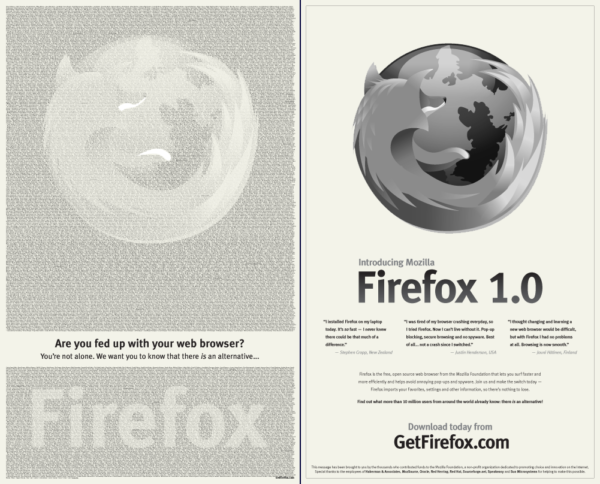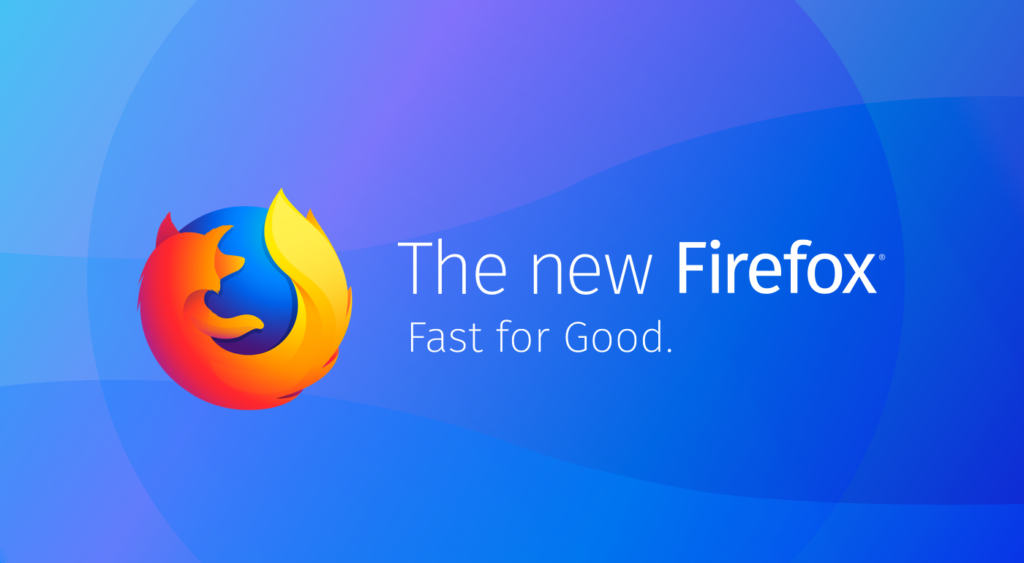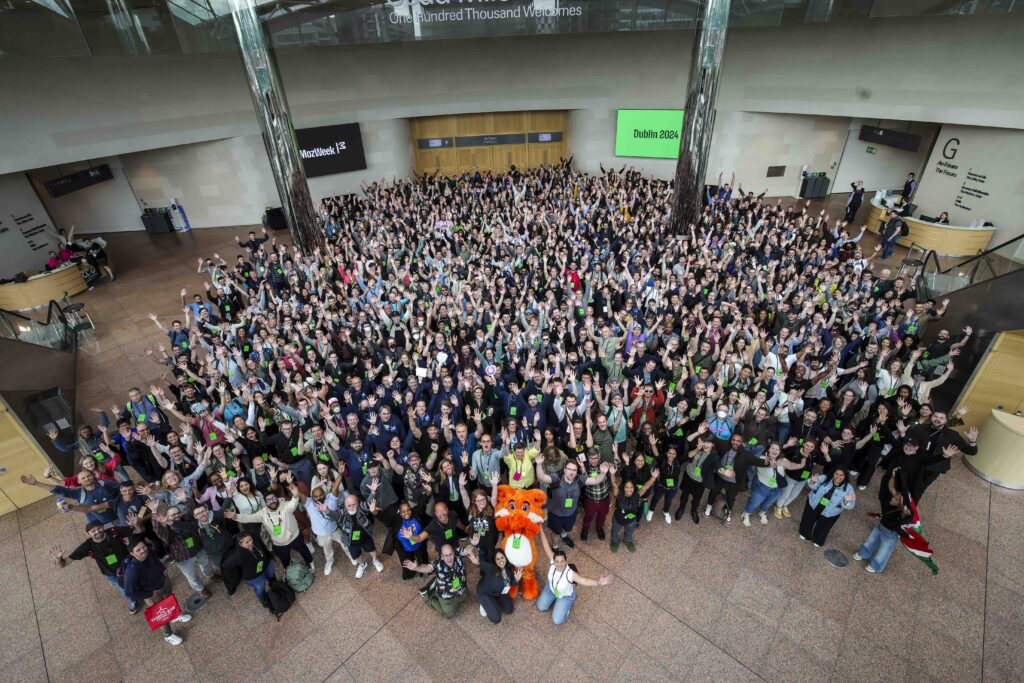20 years of Firefox: How a community project changed the web
What was browsing the web like in 2004? People said things like surfing the internet," for starters. Excessive pop-up ads were annoying but they felt like the norm. The search bar and multiple tabs did not exist, and there seemed to be only one browser in sight. That is, until Firefox 1.0 arrived and gave it real competition.
Built by a group of passionate developers who believed the web should be open, safe and not controlled by a single tech giant, Firefox became the choice for anyone who wanted to experience the internet differently. Millions made the switch, and the web felt bigger.
As the internet started to evolve, so did Firefox - becoming a symbol of open innovation, digital privacy and, above all, the ability to experience the web on your own terms. Here are some key moments of the last 20 years of Firefox.
2004: Firefox 1.0 launchFirefox 1.0 launched on Nov. 9, 2004. As an open-source project, Firefox was developed by a global community of volunteers who collaborated to make a browser that's more secure, user-friendly and customizable. With built-in pop-up blocking, users could finally decide when and if they wanted to see pop-ups. Firefox introduced tabbed browsing, which let people open multiple sites in one window. It also made online safety a priority, with fraud protection to guard against phishing and spoofing.
 On Dec. 15, 2004, Firefox's community-funded, two-page ad appeared in The New York Times, featuring the names of thousands of supporters and declaring to millions that a faster, safer, and more open browser was here to stay.2005: Mozilla Developer Center
On Dec. 15, 2004, Firefox's community-funded, two-page ad appeared in The New York Times, featuring the names of thousands of supporters and declaring to millions that a faster, safer, and more open browser was here to stay.2005: Mozilla Developer CenterMozilla launched the Mozilla Developer Center (now MDN Web Docs) as a hub for web standards and developer resources. Today, MDN remains a trusted resource maintained by Mozilla and a global community of contributors.
 Local Firefox fans in Oregon made a Firefox crop circle in an oat field in August 2006. 2007: Open-source community support
Local Firefox fans in Oregon made a Firefox crop circle in an oat field in August 2006. 2007: Open-source community supportThe SUMO (support.mozilla.org) platform was originally built in 2007 to provide an open-source community support channel for users, and to help us collaborate more effectively with our volunteer contributors. Over the years, SUMO has become a powerful platform that helps users get the most out of Firefox, provides opportunities for users to connect and learn more from each other, and allows us to gather important insights - all powered by our community of contributors. Six active contributors have been with us since day one (shout outs to cor-el, jscher2000, James, mozbrowser, AliceWyman and marsf) and 16 contributors have been here for 15+ years!
A Mozilla contributor story by Chris Hoffman.2008: A Guinness World RecordFirefox 3.0 made history by setting a Guinness World Record for the most software downloads - over 8 million - in a single day. The event known as Download Day was celebrated across Mozilla communities worldwide, marking a moment of pride for developers, contributors and fans.
2010: Firefox goes mobileFirefox made its debut on mobile on Nokia N900. It brought beloved features like tabbed browsing, the Awesome Bar, and Weave Sync, allowing users to sync between desktop and mobile. It also became the first mobile browser to support add-ons, giving users the freedom to customize their browsing on the go.
 Pocketfox by Yaroslaff Chekunov, the winner of the Firefox Goes Mobile" design challenge. 2013: Hello Chrome, it's Firefox calling
Pocketfox by Yaroslaff Chekunov, the winner of the Firefox Goes Mobile" design challenge. 2013: Hello Chrome, it's Firefox callingFirefox made a major leap with WebRTC (Web Real-Time Communication), allowing users to make video and voice calls directly between Firefox and Chrome without needing plugins. This cross-browser communication was a breakthrough for open web standards, making it easier for users to connect seamlessly. Firefox also introduced RTCPeerConnection, enabling users to share files during video calls, further enhancing online collaboration.
2014: Privacy on the webFirefox has shipped a steady drumbeat of anti-tracking features over the years, greatly increasing the privacy of the web. The impact has gone beyond just Firefox users, as online privacy is now a table-stakes deliverable for all browsers.
- 2014: Block trackers from loading
- 2016: Containers can isolate sites within Firefox
- 2018: Enhanced tracking protection blocks tracking cookies (more on this below)
- 2020: Significant improvements to prevent sites from fingerprinting" users
- 2022: Total Cookie Protection isolates all third party tracking cookies (more on this below)

Firefox took a huge step forward with Firefox Quantum, an update that made browsing twice as fast. Thanks to a new engine built using Mozilla's Rust programming language, Firefox Quantum made pages load faster and used 30% less memory than Chrome. It was all about speed and efficiency, letting users browse quicker without slowing down their computer.
2018: Firefox blocks trackersEnhanced Tracking Protection (ETP) was introduced as a new feature that blocks third-party cookies, the primary tool used by companies to track users across websites. ETP made it simple for users to protect their privacy by automatically blocking trackers while ensuring websites still functioned smoothly. Initially an optional feature, ETP became the default setting by early 2019, marking a significant step in giving users better privacy without sacrificing browsing experience.
2019: Advocacy for media formats not encumbered by patents
Mozilla played a significant role in the standardization and adoption of AV1 and AVIF as part of its commitment to open, royalty-free and high-quality media standards for the web. Shipping early support in Firefox for AV1 and AVIF, along with Mozilla's advocacy, accelerated adoption by platforms like YouTube, Netflix and Twitch. The result is a next-generation, royalty-free video codec that provides high-quality video compression without licensing fees, making it an open and accessible choice for the entire web.
Adobe retired Flash on Dec. 31, 2020. Mozilla and Firefox played a pivotal role in the end of Adobe Flash by leading the transition toward more secure, performant and open web standards like HTML5, WebGL and WebAssembly. As Firefox and other browsers adopted HTML5, it helped establish these as viable alternatives to Flash. This shift supported more secure and efficient ways to deliver multimedia content, minimizing the web's reliance on proprietary plugins like Flash.
2022: Total Cookie ProtectionFirefox took privacy further with Total Cookie Protection (TCP), building on the foundation of ETP. Cookies, while helpful for site-specific tasks like keeping you logged in, can also be used by advertisers to track you across multiple sites. TCP isolates cookies by keeping them locked to the site they came from, preventing cross-site tracking. Inspired by the Tor Browser's privacy features, Firefox's approach integrates this tool directly into ETP, giving users more control over their data and stopping trackers in their tracks.
2024: 20 years of FirefoxThese milestones are just a snapshot of Firefox's story, full of many chapters that have shaped the web as we know it. Today, Firefox remains at the forefront of championing privacy, open innovation and choice. And while the last 20 years have been transformative, the best is yet to come.
 From left to right: Stuart Parmenter, Tracy Walker, Scott McGregor, Ben Goodger, Myk Melez, Chris Hofmann, Asa Dotzler, Johnny Stenbeck, Rafael Ebron, Jay Patel, Vlad Vucecevic and Bryan Ryner. Sitting, from left to right: Chase Philips, David Baron, Mitchell Baker, Brendan Eich, Dan Mosedale, Chris Beard and Doug Turner in 2004. Credit: Mozilla
From left to right: Stuart Parmenter, Tracy Walker, Scott McGregor, Ben Goodger, Myk Melez, Chris Hofmann, Asa Dotzler, Johnny Stenbeck, Rafael Ebron, Jay Patel, Vlad Vucecevic and Bryan Ryner. Sitting, from left to right: Chase Philips, David Baron, Mitchell Baker, Brendan Eich, Dan Mosedale, Chris Beard and Doug Turner in 2004. Credit: Mozilla Mozillians and Foxy in Dublin, Ireland in August 2024. Credit: Mozilla
Mozillians and Foxy in Dublin, Ireland in August 2024. Credit: Mozilla The post 20 years of Firefox: How a community project changed the web appeared first on The Mozilla Blog.